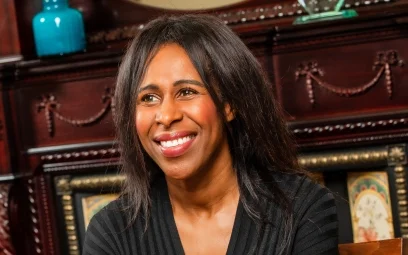
Posted on 27 October 2015
The push for straight Civil Partnerships
Posted in Advice
The Civil Partnership Act 2004 gave same sex couples who took part in a civil partnership the same legal rights and responsibilities as heterosexual married couples. A further major development in the law occurred with the Marriage Same Sex Couples Act 2013 which extended marriage to same sex couples. Although civil partnerships remain available for same sex couples, since 10th March 2014 same sex marriages are now legal.
Same sex couples have two choices now if they wish to formalise their relationship. They can enter into either a civil partnership or a marriage under the new law. However some commentators say that the new legislation has in fact unintentionally created inequality as there is no legally recognised equivalent to a civil partnership between straight partners. Their only option if they want to formalise their relationship is marriage whereas if you are in a same sex relationship you have the additional option of entering into a civil partnership.
Why is this an issue?
There are some commentators who feel that the inequality in favour of same sex couples needs to be rectified. It is argued that having this additional option is in fact beneficial for opposite sex partners. There are couples who may not want to go through the traditional form of marriage as even if they have the marriage performed at a Registry Office they consider that the institution of marriage is innately religious and some say there is a patriarchal side to it.
Earlier this year in February 2015 a High Court Judge granted permission to Rebecca Steinfeld and Charles Keidan to continue with their legal case against the British Government and bring a judicial review against the decision not to allow opposite sex couples the right to have a civil partnership. The couple, a year before, announced an engagement in a newspaper but stated that they would get civilly partnered rather than married, in order to push for full marriage equality. They stated that they did not wish to enter into a formal union which brought with it the traditions of marriage. Mrs Justice Elizabeth Laing DBE gave permission for the case to proceed and also issued a protective costs order in order to limit the couples’ liability for Government legal costs should they be unsuccessful.
Human rights law expert Robert Wintemute has stated that the European Convention of Human Rights requires the Government to show “particularly convincing and weighty” reasons why it is necessary to exclude opposite sex couples from civil partnerships now that same sex couples may marry.
Further news is awaited as to what is happening in relation to the legal case against the British Government. However there have been very recent developments with regard to the actual proposed changes in the law itself.
Tory MP Tim Loughton, the MP for East Worthing and Shoreham, has pushed forward with a bill which would introduce civil partnerships as an alternative to marriage for straight sex couples.
On Wednesday 21st October 2015 Mr Loughton’s private members bill, the Civil Partnership Act 2004 (Amendment) bill was debated in the House of Commons. The current law caused discrimination and inequality between same sex and opposite sex couples. By offering civil partnerships as an additional option to marriage this could have positive benefits for cohabiting couples. At the present time cohabiting couples have no legal rights or protection. If civil partnership is permitted between opposite sex couples this could increase the numbers of cohabiting couples who move towards a formal relationship which would give them rights and protection which is currently afforded to same sex couples by way of a civil partnership. It is pointed out that other countries such as South Africa and France allow a formal alternative to marriage and this should be extended to England and Wales. The Tory MP has pointed out that there would be no disadvantages in allowing an amendment to the law to remove the inequality in the law.
What was the outcome of the 10 minute rule bill being debated on 21st October 2015?
Leave was given for the private members bill to have its second reading on 29th January 2016 in the House of Commons. If the bill successfully gets its second reading then it will go to the committee stage. The general view is that the bill is unlikely to become law. Private members bills rarely succeed and the government has previously decided against introducing straight civil partnerships following public consultation. However the Government consultation found that 20% of straight unmarried couples would prefer to have the ability to form a civil partnership rather than marry or live together. It is contended that not allowing them to do so would not push these couples into marriage. It is suggested by some commentators that if you value and support the idea of making a formal legal commitment then it does make sense to allow these couples to enter into a civil partnership. It is therefore contended that there is a good case for there to be change in the law to enable heterosexual couples to have the same options available to them as same sex couples.
Please contact our family department for further information on 0113 320 5000 or by email to@email.

